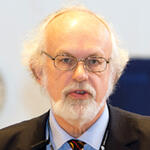Blog
Five things I learned from the 'Responding to crises' conference
The ‘Responding to crises’ conference was marked by wide range of topics. Opening the event was former Finnish Defence Minister and UN Special Rapporteur, Elisabeth Rehn, who gave us the benefit of her experience, not least in the impact of war on women and girls, and the need to follow up on the post-UNSCR 1325 agenda.
From UNU-WIDER, Tony Addison and Rachel Gisselquist built on Rehn’s introduction, talking about three types of crises, ongoing, unexpected, and future, to help systemize our thinking at the conference. The schedule was full of interesting presentations, which can be accessed here and will soon be available on video.
As covering everything in a blog post is an impossible task, here are five key lessons I took away from the conference.
1. Food crises are both continuing and unexpected
David Sahn of Cornell University talked about food crises as largely the result of failed states and post-conflict situations. During his presentation he asked how we can develop criteria to help us decide whether to keep working methodically on chronic situations — including stunting, and, increasingly, obesity and diabetes — or to focus on suddenly emerging crises. He argued that ongoing crises face competition for resources due to a perception that emergencies can’t wait, but chronic malnutrition can. Chronic malnutrition (stunting and micronutrient deficiencies) represents a silent emergency, greater in scope than acutely malnourished; 169 million, or approximately 30% of children under 5 years old are stunted.
2. The difference between stocks and flows
In the final plenary, Paul Shaffer rethought how crises were discussed at the conference. In particular, he pointed out that as with poverty, crises can be thought of as being either stocks or flows. In this view, chronic ongoing problems are designated as stocks which need to be worked at systematically, and sudden emergencies are flows, which need to be stopped or at least mitigated.
3. The international system is changing
If you cannot do everything — which is the basis of economics, the study of how allocation works in conditions of scarcity — what do you do? And who does it? This was the challenge taken up in the second plenary, which was well stocked with ambassadorial wisdom, that is to say people who have real experience of making the sub-optimal international ‘system’ work better rather than worse.
Brazil’s Ambassador, Antonio Da Costa e Silva Neto, suggested that order might not be what is being sought, but rather acceptance of change. Thirty years ago, many would have welcomed the rise of the BRICs as a future prospect, we should not now be so wary of the changes in the international system this rise has brought about.
4. Aid works
Finn Tarp argued that aid, when properly administered, can make a long-term positive impact on development. A central fact, but only a small part of his argument, is that two of the most aid-dependent countries in the world, Mozambique and Vietnam, have each increased their per capita income by a factor of eight in the course of 30 years or so. On its own, this is an anecdote (albeit true). As part of a well-assembled argument, it is impressive.
There is a problem, of course, as Rorden Wilkinson outlined. He raised the alarming point that our institutions are too slow to respond to sudden crises. Many of these crises are not neatly national, nor are they obviously and solely international. It often seems that they are too fast and vast to call forth an adequate institutional response.
5. The person under the tree
Being displaced was discussed extensively in the conference, both in terms of refugees and the internally displaced. In a way, the most significant contribution on this subject was also ‘out of place’ — a determinedly non-academic talk in the final plenary by Oxfam’s David Crawford — for whom an airport waiting lounge can be under a tree on an airstrip in West Africa.
How could we — in a centrally-heated and air-conditioned conference centre, with hotel-standard buffet food on hand — really connect with the social reality of those who hurriedly leave their homes with what they can carry?
Crawford's implicit message was that we are so far removed that we cannot. That seems to me to be undeniable. Air-conditioned and sanitized discussions are far from the food shortages, shit and disease of crisis situations. Crawford went deeper by stressing that, even if you are in the thick of it, say in a refugee camp, you will almost certainly not be aware of the larger picture and that well-intentioned actions may have negative consequences and side-effects.
This was an effective and good provocation. It was right to do it and it was well delivered. But I do not have a ready answer saying what I, or we, can do with it. That is no bad thing. It reminds us that these issues are intractable but not impossible. David Crawford’s presentation and perhaps the conference as a whole suggest that we need many viewpoints, disciplines, and analytical styles to even begin to get to grips with the subject.
 Join the network
Join the network





